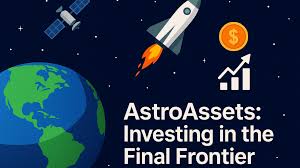IT IS YOUR MONEY
Digital Assets and RWA: Unlocking New Opportunities in Space Finance and Satellite Investment
The commercial space industry is expanding rapidly, but access to capital remains a barrier for many startups and private ventures. Digital assets and real world assets (RWA) are opening new financing avenues by enabling tokenized satellite ownership, decentralized investment pools, and transparent revenue-sharing models tied to space-based assets.

Tokenizing Satellites and Launch Infrastructure
Satellites, launch pads, and ground stations can now be tokenized, allowing investors to own fractions of these high-cost assets. This model enables space companies to raise funds without relying solely on government contracts or venture capital firms.
Real-Time Revenue Tracking from Space-Based Services
Blockchain technology allows investors to track real-time data from satellite operations—such as Earth imaging, broadband connectivity, or weather monitoring—and receive automated returns based on usage metrics. Smart contracts ensure fair revenue distribution among stakeholders.
Decentralized Investment Platforms for Space Exploration
DAOs and blockchain-based crowdfunding platforms are emerging to support lunar missions, asteroid mining, and orbital research projects. These initiatives allow global participation in space exploration while offering tangible financial incentives linked to mission success.
Enhancing Transparency and Regulatory Compliance
Space finance involves complex regulatory frameworks across jurisdictions. Digital assets and RWA provide immutable records of asset ownership, licensing agreements, and compliance documentation, ensuring transparency and reducing legal friction.
To explore how digital assets and RWA are transforming space finance and satellite investment, visit DigitalAssets.Foundation for expert guidance and a FREE consultation.

More News
© 2026
